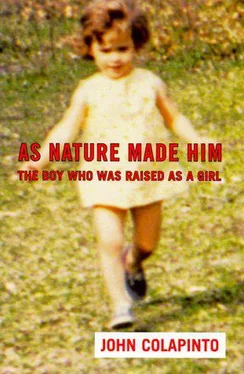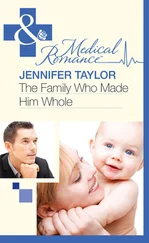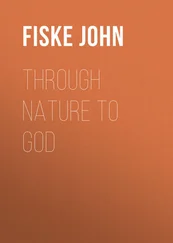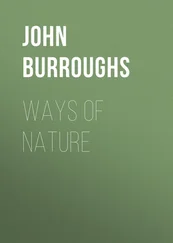By providing a seemingly solid psychological foundation for such treatments, Money had offered physicians a relatively simple surgical solution to one of the most vexing and emotionally fraught conundrums in medicine: how to deal with the birth of an intersexual child. “One can hardly begin to imagine what it’s like for a parent when the first question—‘Is it a boy or a girl?’—results in a response from the physician that they’re just not sure,” says Dr. Fred Berlin. “John Money was one of those folks who, years ago, before this was even talked about, was out there doing his best trying to help families, trying to sort through what’s obviously a difficult circumstance.”
Money, however, was not interested chiefly in intersexes. As he stated as early as his Harvard thesis, he recognized the scientific worth of intersexes primarily as what he called “experiments of nature”—as a cohort of research subjects who could shed light on the question of sexual development in normal humans—who could, in fact, resolve one of the longest-running debates in science; namely, whether it is primarily nature or nurture that shapes our sexual sense of self. It was in his first published papers at Johns Hopkins that Money generalized the theory of psychosexual neutrality at birth from hermaphrodites to include all children, even those born without genital irregularity.
“From the sum total of hermaphroditic evidence,” he wrote in 1955, “the conclusion that emerges is that sexual behavior and orientation as male or female does not have an innate, instinctive basis. In place of a theory of instinctive masculinity or femininity which is innate, the evidence of hermaphroditism lends support to a conception that, psychologically, sexuality is undifferentiated at birth and that it becomes differentiated as masculine or feminine in the course of the various experiences of growing up.” In short, Money was advancing a view that human beings form a sense of themselves as boy or girl according to whether they are dressed in blue or pink, given a masculine or feminine name, clothed in pants or dresses, given guns or Barbies to play with. Many years later, Money would describe how he arrived at some of his more radical theories about human sexual behavior. “I frequently find myself toying with concepts and working out potential hypotheses,” he mused. “It is like playing a game of science fiction.”
While Money’s theory of human newborns as total psychosexual blank slates may strike a contemporary reader as science fiction, such was not the case in the mid-1950s, when it was met with almost universal acceptance by clinicians and scientists—an acceptance not difficult to understand in the context of the time. Explanations for sex differences had been moving toward a nurturist view for decades. Prior to that, the pendulum had been pointing in the naturist direction—thanks to the discovery at the end of the nineteenth century of the so-called male and female hormones, testosterone and estrogen. The discovery of these chemical-based internal secretions had led biologists to proclaim the riddle of sex differences solved: testosterone was the masculinizing agent; estrogen, the feminizing. They confidently predicted that male homosexuals would be discovered to possess an excess of the “female” hormone in their bloodstream and a deficiency of the “male” hormone. Minute analysis of the urine and blood of adult homosexual men, however, revealed no such hormonal imbalances. Under the microscope, a straight and a gay man’s internal secretions are identical. Other experiments meant to show the hormonal basis of sexual identity also failed, and as the failures mounted, enthusiasm for a biological explanation of sexual differences gradually waned. Simultaneously, the first half of the twentieth century and the advent of Freud and modern psychology saw a rapid increase in social learning models for human behavior. Against this background, the Johns Hopkins team’s conclusions that sexual identity and orientation were solely shaped by parents and society fit perfectly into an intellectual zeitgeist in thrall to behaviorist theories. Nor did it detract from the papers’ reception that they carried the imprimatur of Johns Hopkins Hospital, one of the premier medical research institutions in the world.
The Johns Hopkins team’s 1955 intersex papers were proclaimed instant classics and won that year’s Hofheimer Prize from the American Psychiatric Association. The Hampsons soon left Johns Hopkins for Washington State University and by 1961 had drifted out of gender identity research. As a result, Money alone became heir to the award-winning papers’ reputation. And as sole director of the Psychohormonal Research Unit (after Lawson Wilkins’s death in 1962), he was also the lone beneficiary of the unit’s success. In 1963 Money was awarded a grant of $205,920 from the National Institutes of Health—a considerable sum in early-1960s dollars, but merely the first of several NIH grants that would sustain Money and his unit for the next thirty-five years. In 1965 he served as Mead Johnson visiting professor of pediatrics at the University of Buffalo Children’s Hospital, and was awarded the Children’s Hospital of Philadelphia Medal “for contributions to the study of the psychological development of children.” A year later he would begin to garner fame outside the academic realm when he finally succeeded in persuading Johns Hopkins to establish the clinic for the treatment and study of adult transexuals.
Money had been galvanized by transexualism since 1952, when the revelations about Christine Jorgensen first hit the press. In Jorgensen’s case, Money saw tantalizing proof of his theory that environment, not biology, determines psychological sex, for here was a person born with apparently normal male biological makeup and genitals whose inner sense of self had differentiated as female—in direct contradiction to his chromosomal, gonadal, hormonal, reproductive, and anatomic sex. What greater evidence could there be that gender identity is determined not by biology but by environment? Determined to study such individuals in the greatest number possible, Money set out to get Johns Hopkins into transexual research and treatment, which was still a repellent idea for the majority in the American medical establishment.
In his campaign to establish Johns Hopkins as the first hospital in America to embrace transexual surgeries, Money knew that he would first have to bring on board a respected medical man. (Money himself was a psychologist and did not possess a medical degree of any kind.) He turned first to Dr. Howard Jones, the Johns Hopkins gynecologist who had perfected the surgical techniques for sex assignment on Money’s infant intersexual subjects. “I can recall,” Jones says, “that for a number of months, maybe even years, John kept raising the question of whether we shouldn’t get into the transexual situation.” While Jones was interested in experimental medicine (he would eventually leave Johns Hopkins for the University of Virginia where he would found the nation’s first in vitro fertilization clinic), he was resistant to the idea of performing elective castrations and genital reconstruction on adults.
But Money was persistent. He turned for help to Dr. Harry Benjamin. The acknowledged grandfather of transexual study in America, Benjamin had for the previous ten years been quietly referring transexual patients to doctors in Casablanca and Morocco for sex change surgery. Money enlisted three of Benjamin’s postoperative transexuals to come to Johns Hopkins and meet with Jones and pediatric endocrinologist Milton Edgerton. Eventually Jones and Edgerton were convinced. “John finally marshaled enough evidence,” as Jones puts it, “to indicate that this was something that maybe should be done.” Fittingly enough, Money was given the job of naming the new clinic for adult transexual surgeries. He dubbed it the Gender Identity Clinic.
Читать дальше












